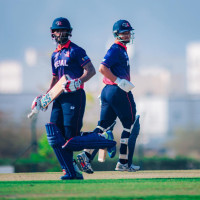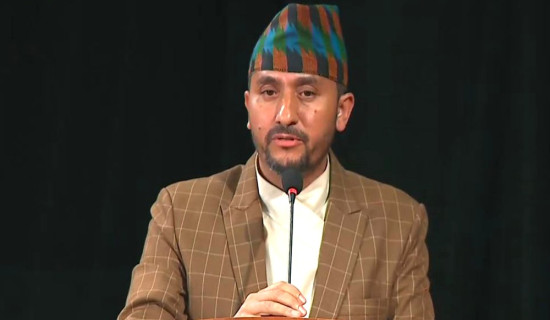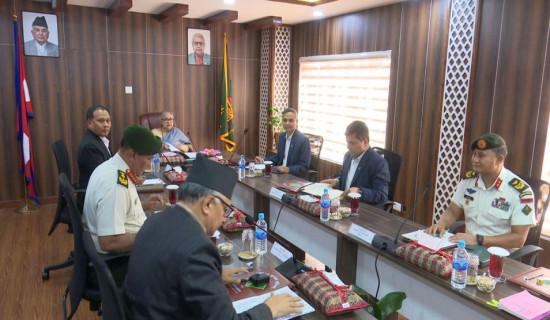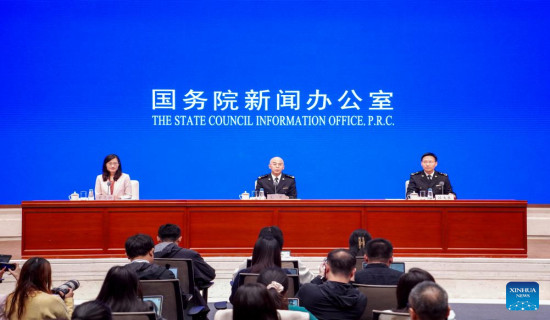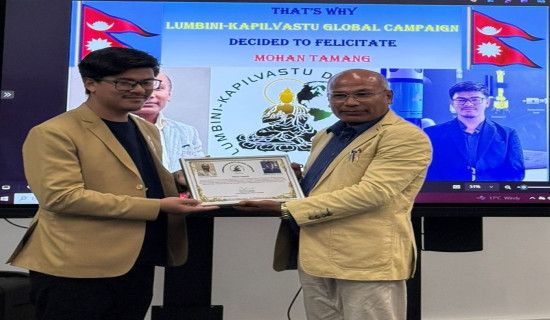- Tuesday, 14 October 2025
'Women's candidacy weak due to expensive election systems'
Kathmandu, Feb 2 : It has been a year since Kusum Devi Thapa assumed the responsibility as a federal parliamentarian.
The main role of the Member of
Parliament is law-making. The first year was not satisfactory in law-making as
anticipated.
Only one law was enacted during the
year. The parliament has not been effective in terms of legislative process.
The government could not introduce adequate number of bills in the parliament.
It should be realized as a weakness.
Both the government and opposition
should be active in law-making. In the period, the opposition was focused on
ascending to power. Consequently, the agenda of law-making could not get higher
priority.
It is obvious for the political
parties to woo voters with their agendas in elections. But there should be a
wider consensus and mutual understanding among the parties in terms of
law-making. It was not realized in the meantime.
There has been a stereotypical
consideration that the new and women lawmakers are comparatively weak in their
performance. In Nepal's context, the role of lawmakers is not limited to law
making. It is customary for voters to associate lawmakers with development
works. However, we need to be aware that law-making is a priority.
The question of quorum has been raised not only in the parliament and parliamentary committees but also in the parliamentary party as some MPs have not been able to set their priorities. I have been raising the voice in the party time and again.
For this, presence in the meeting
should be made mandatory. How can a parliamentarian without attending the
discussion know the content and implications?
One needs to know the far-reaching
effects when a law is enacted or not.
Lately, women's candidacy has
become weak in the first-past-the-post election due to expensive electoral
systems. There has been a hesitation to allocate tickets to women candidates in
direct election because of their limited economic rights. So, men's number has
been shrunk in proportional representation electoral system. The top leadership
of the parties should think about the issue.
Rukum-East is the country's youngest
and new district. It has a difficult topography. It is lagging behind from
education, health, road and infrastructure development aspects. Access to
electricity is a big issue in the district. I have not realized the presence of
own party's government in the district, especially from budget allocation
aspect. It is ignored from every aspects.
Even I feel discriminated in the
parliament on many fronts for being a woman. We have been raising current and
district-specific issues in zero hour. We are not provided with adequate time
in special hour and other sessions. Women lawmakers are treated a second
class.
The political system has changed
but not the people's situation in the country.
(Based on a conversation RSS Deputy
Chief Reporter Narayan Neupane had with lawmaker Kusum Devi Thapa under the
'RSS Dialogue with Lawmakers'.
Thapa is a permanent resident of Putha
Uttarganga-10 in Rukum East. Leader Thapa, who started her political journey
from Nepal Students Union in 2052 BS, has experience of working as central
committee member of the union, founding member and vice-president of Nepal
Rastriya Magar Sangh.




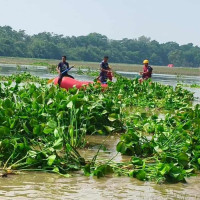
-square-thumb.jpg)


